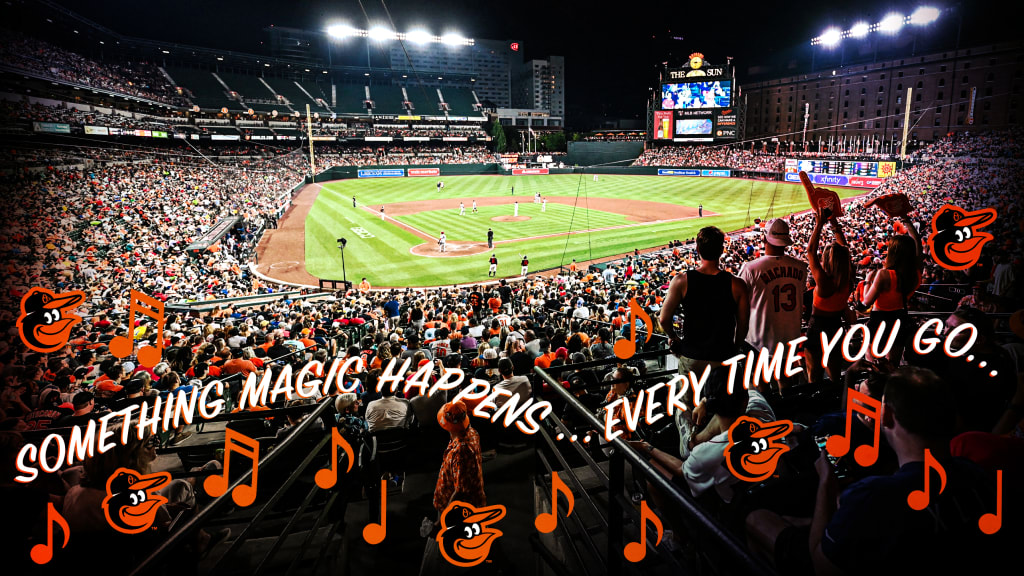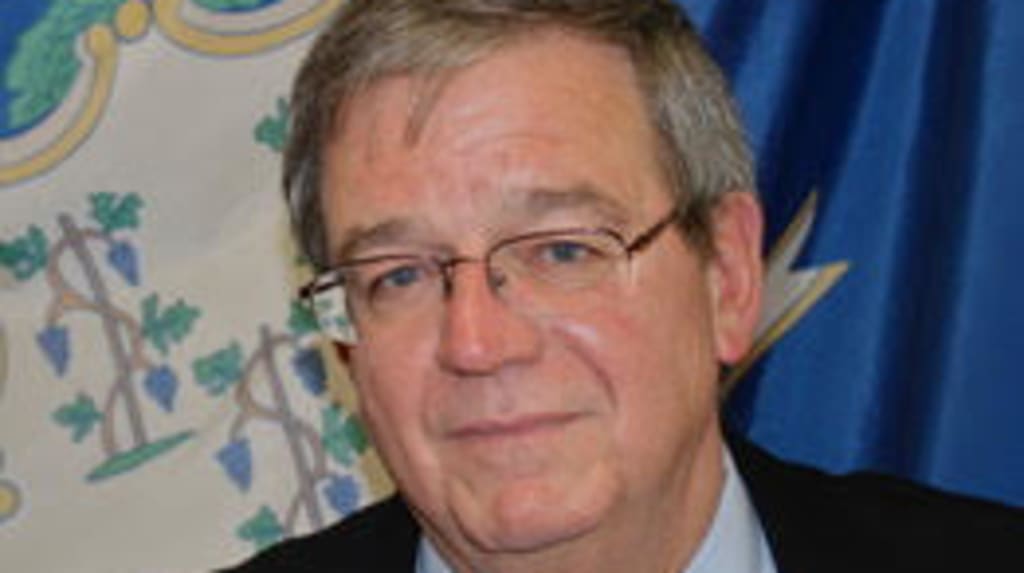
"Orioles Magic."
It's a phrase you've likely seen on social media or read in articles over the last 40 years whenever the Orioles are playing well.
It originated as, well, just a feeling, during the team's success in the late 1970s. The term popped up again when the O's won it all in 1983, it was on fans' minds during Cal Ripken's famous streak and crowds at Camden Yards basked in it during three postseason appearances from 2012-16. And now, during some improbable, unexpected success in the midst of a rebuild in 2022, the magic seems to be back again.
One of the main reasons that feeling has stuck around all this time is because after the 1979 season, the season in which the O's made a surprising run to the World Series, that feeling was transformed into a song. It's called, as you may have guessed, "Orioles Magic," and it was composed by Walt Woodward.
"To have moved into an entirely different career, to become a state historian -- another job I've loved for 25 years -- yet still have this piece of music resurface, it's a thrill," Woodward told me in a phone call. "It's a thrill."

Funny enough, Woodward, originally from Cleveland, has never really had a job that had anything to do with baseball.
He was very briefly a country singer in the 1970s before moving into the advertising business with a firm called Perfect Pitch. Once there, he was responsible for writing jingles for companies. Eventually, though, Woodward came into contact with Bryan Burns -- former director of marketing and broadcasting for the Royals. Burns reached out to Perfect Pitch in hopes that they could write a team song that would play on radio and TV broadcasts before games. The song "Royalmania" was born.
Other teams took notice of these catchy, singalong songs that became popular during this time (Meet the Mets and Tessie had already been around for years and OK Blue Jays would debut in the early 1980s). The Orioles, after getting to the Fall Classic in '79, reached out to Woodward about creating a team anthem.
"We sat down with [the Orioles marketing director] and he says, 'I gotta make it clear to you what's going on in this town. It is magic what's happening here,'" Woodward recalled. "And he talked about Bill Hagy in Section 34, how a winner would surface out of nowhere in every game, and all the home runs. There was this magic going on in Baltimore and he wanted to capture it in music."
The story of the O's in '79 was quite a magical one: The team was young and really without World Series aspirations, but they ended up winning the AL pennant with a 102-57 record. Crowds were streaming into Memorial Stadium, and not only because the team was playing well, but also because radio broadcasts had switched over to WFBR-AM -- a top-40 music station with a younger, hipper audience. The station promoted the team like never before and tickets flew off the shelves.
The success, combined with the heavy advertising (both probably benefited off the other), produced a sort of magic in the air. There were unreal comebacks. Earl Weaver stressed the power of the three-run home run. The team pitching staff, led by Jim Palmer and Mike Flanagan, was elite. Stadium chants led by "Wild" Bill Hagy created a loud, boisterous atmosphere that players latched onto. The Charm City had caught a massive baseball fever.
Orioles official team historian Bill Stetka wrote about the magical feelings in a story celebrating the team's 30-year-anniversary.
"At about the same time, part of that younger, hipper audience was creating a foothold in Section 34 of Memorial Stadium’s upper deck. Down the right-field line, these fans – led by a cab driver in a cowboy hat named Wild Bill Hagy – brought unbridled enthusiasm (not to mention lots of beer and other potables) to the stands. Many of the people listening on the radio began showing up at the ballpark. The young team fed off this new young audience, and it all came together in its own kind of harmonic convergence that built through the summer months."
Woodward took all this in, went back home, and apparently wrote the O's new tune in about an hour.
"Sometimes, you have to really struggle to figure out, 'Where's the story?'" Woodward told me. "With 'Orioles Magic,' it was just, 'Can we tell this story about what's going on in Baltimore in a way that captures the feeling of what's going on in Baltimore?' I remember sitting with the guitar, and the minute the Orioles Magic thing came out -- the minute that tune surfaced with those words -- I knew this was it and it was off to the races."
The song debuted in April of 1980 and fans immediately connected with it.
The team ran out to the field to "Orioles Magic" up until the 2008 season. It's still played, with fans singing along, after walk-off victories. There are podcasts and books with the same name. The tune has outlasted many other team anthems -- getting a remix treatment from a Virginia rapper named Cane and a delightful rendition from Kevin Millar and Adam Jones in the late-aughts.
"It's just one of those baseball things that's gonna stick around for a long time," Woodward said. "It was such a wonderful marriage between a team and fans of the team. They bonded in a way that sort of transcends normal fandom and becomes something even bigger."
And now, after a slew of losing seasons (3 of 4 with 100-plus losses), the Orioles, very unexpectedly, are playing well. There've been inexplicable comebacks and wild walk-off wins. They've seen the rise of one of the best young players in baseball. They have home run chains. They have a reliever who walks out to the sounds of a Baltimore icon.
Through Wednesday, the young, inexperienced team (sound familiar?) is just 2.5 games out of the final Wild Card spot. The talk of magic, something that's been talked about in Baltimore for nearly five decades, is being talked about again.
Woodward doesn't watch baseball too much these days, but when apprised of the 2022 team's achievements, he sees a familiar pattern with the teams of the late '70s and early '80s.
"That's what '79 was," Woodward said, pausing for a few seconds. "Maybe what it's about, in some ways, it's when the underdog wins. There's nothing better than when the underdog pushes above his or her weight, right? And so here it is happening again. And when that happens, it does excite people. And when it's sustained for awhile, it really does become magic."



